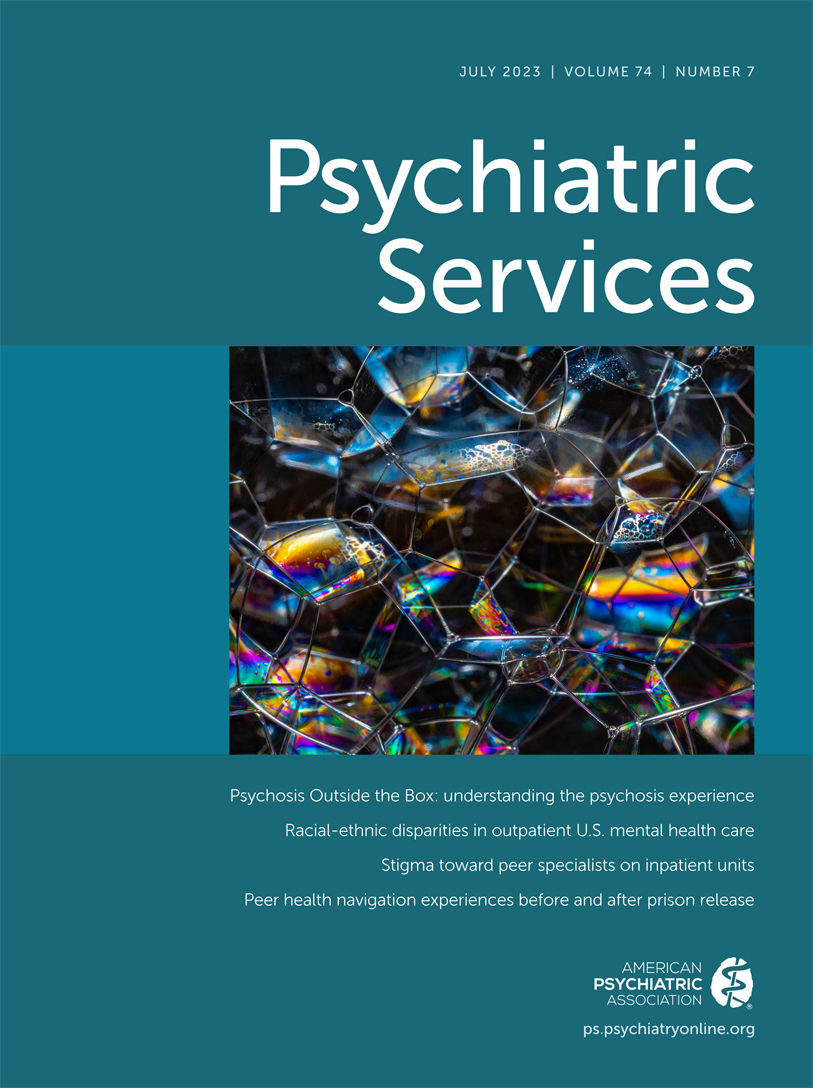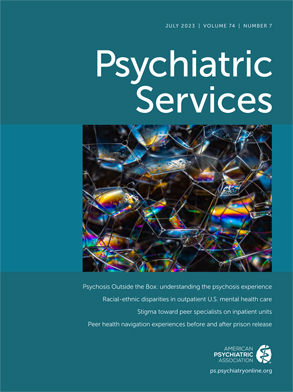Over the past 2 years, multiple factors have exacerbated psychiatric workforce shortages. The COVID-19 pandemic has brought dramatic increases in demand for psychiatric services (
1). The national implementation of the 988 Suicide and Crisis Lifeline has led to an anticipated rise in mental health service needs. Inflation and high costs of health care delivery without commensurate increases in insurance reimbursement have compounded the supply-demand challenge. The workforce shortage of psychiatrists by 2024 is projected to be between 14,280 and 31,091 (
2). The pandemic increased psychological distress and burnout among health care workers, causing many to leave their jobs as part of a larger workforce shift known as the Great Resignation (
1). Given the rapid changes in the mental health care workforce, we support expanding the role of advanced practice providers (APPs), such as advanced practice psychiatric nurses (APRNs) and physician assistants (PAs), as an essential solution for workforce shortages. In this column, we highlight the effects of workforce shortages, provide the rationale for APP role expansion, and describe supervision and training approaches for APPs. We also describe a PA fellowship program that enhances educational rigor and psychiatric practice experience.
Multiple solutions have been used to address current workforce challenges. Organizations have contracted with locum psychiatry staffing services to try to meet the acute staffing needs resulting from the high demand for and low supply of psychiatrists. Although stimulus payments can initially support the higher costs for care delivery, continued costs for locum services are untenable in the long term. In addition, organizations have used technology-enabled solutions such as telehealth and digital tools to support ongoing care or bridge provider gaps. Unfortunately, the use of locums or telehealth can lead to extensive turnover and onboarding costs, which have financial and quality-of-care effects, as well as to multiple transitions for clients. Ensuring organizations’ financial health and maintaining quality of care are critical, because patients do not benefit from clinic closures or gaps in care due to a lack of psychiatric providers.
APPs are increasingly important providers of psychiatric services. Although PA and APRN trainings differ, both require graduate-level education, clinical training, and licensure to practice (under either a medical, an osteopathic, or a separate nursing board). Both also have doctorate-level tracks available. Many APPs have generalist training, and no additional training is required to change to specialty practice. A specialized psychiatric mental health nurse practitioner training path is available. The differences between clinical training for APPs and clinical training for psychiatrists are stark, however. Psychiatrists complete 4 years of medical school and at least an additional 4 years of postgraduate psychiatric training before starting to practice. Within APP training, clinical rotations provide only weeks of exposure to psychiatry practice.
An advantage of APPs is the larger number of providers available and the comparative cost advantages. In 2019, the United States had 139,688 certified PAs, and about 1.9% worked in psychiatry (
3). For APRNs, those numbers are even higher, with more than 355,000 licensed in the United States and 6.5% certified to work in psychiatry (
4). APP salaries are typically 50%–60% of physician salaries. Although some additional costs related to physician compensation for supervision of APPs may be incurred, the total costs of an APP are still lower than those of a psychiatrist. Also, APPs can bill for most psychiatric services. Medicare reimburses PAs and APRNs at 85% of physician charges, according to the Medicare Learning Network (
5).
Primary concerns about APPs include lower training requirements, lack of supervision, minimal exposure to complex needs in community settings, and adherence to safe prescribing practices. These structural concerns may be addressed by strengthening supervision, enhancing organizational supports, and utilizing specialized training such as fellowship programs. State medical boards have developed guidelines for physicians who supervise APPs, assigning the supervising physicians the responsibility of APP oversight and establishing prescriptive authority agreements. Although state laws vary, systems are in place in all states to hold APPs accountable for their actions. APPs can be held directly responsible for their practice behaviors through disciplinary board hearings, license suspension and revocation, and even malpractice lawsuits. Supervising physicians are held accountable for the quality of supervision provided. To provide higher-quality supervision, a supervising physician can choose to increase supervision frequency, limit controlled-substance prescriptions, require notification of patient pregnancy status, and mandate additional monitoring for patients taking clozapine or lithium. As APPs improve their knowledge and skills, these oversight activities can be revised and updated accordingly.
Organizational processes can support APPs before and after hiring. Medical leaders within organizations can be intentional about hiring APPs with specific qualifications and years of experience in psychiatric settings. For example, APPs who work in primary care may have some experience treating less complex mental health conditions. Organizations can also enhance medication safety practices by investing in the monitoring of prescribing practices, clinical quality measurement review for all medical staff (including APPs), medication event reporting, and robust professional peer review processes. Organizations can also support educational programs designed to increase the rigor of practice and enhance APPs’ experience in psychiatric care delivery, such as psychopharmacology presentations and clinical case conferences.
In addition, specialized postgraduate training can further support APP integration into practice. Psychiatry PA specialization programs termed “fellowships” or “residencies” are yearlong programs open to newly graduated PAs and working PAs looking to pivot to a new career path. In the United States, approximately 25 spots, spread across 14 programs, are offered per year. After the training, many residency or fellowship programs encourage or require participants to continue their education to earn a Certificate of Added Qualifications in psychiatry, a credential established by the National Commission on Certification of Physician Assistants. This examination is available only to PAs with a minimum of 75 hours in specialty continuing medical education, 2,000 hours working as a PA in psychiatry, and experience in procedures and patient cases appropriate for that specialty (
6).
The Harris Center for Mental Health and IDD (the largest local mental health authority in Texas) invested in a PA fellowship program to support workforce development in a community mental health setting. The program, implemented in 2021, accepted two PAs a year and has now expanded to up to four PAs per year. Fellows rotate through various settings, including crisis services (psychiatry emergency services, voluntary crisis stabilization unit), jail services, and outpatient services (e.g., assertive community treatment program, child/adolescent and adult programs). During fellowship year, PA fellows take a curated selection of postgraduate year 1–3 didactic courses from a local accredited psychiatry postgraduate residency training program and established psychopharmacology courses. Fellows also receive direct supervision and clinical training from experienced community psychiatrists. By the end of their training, fellows are prepared to advance their clinical practice and complete the Certificate of Added Qualifications. The program enables qualified individuals to serve in community settings after fellowship training. Graduates are encouraged to provide 2 additional years of care delivery at the Harris Center.
As health care becomes increasingly interdisciplinary and psychiatric workforce shortages increase, the role of APPs should become more prominent to address psychiatric workforce needs, and training programs such as that provided by the Harris Center should be disseminated more widely to support this growing role. Changes in health care economics and the high demand for mental health services will further prompt the expansion of APRN and PA roles in the delivery of psychiatric services.
Acknowledgments
The authors thank Sylvia Muzquiz-Drummond, M.D., and J. Michael Smith, D.H.Sc., P.A.-C., for their work initiating and supporting the physician assistant fellowship program and reviewing the manuscript. These views represent the opinions of the authors and not necessarily those of the Harris Center for Mental Health and IDD or Baylor School of Medicine.

